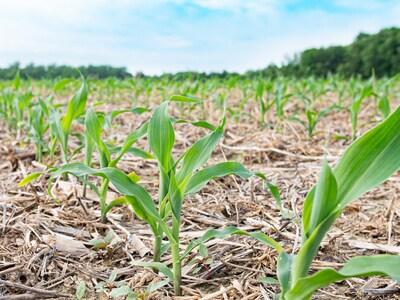
Sustainea Bioglycols, an innovative company focused on renewable chemicals with a low-carbon footprint, is proud to announce the launch of a regenerative agriculture project in partnership with Primient, a leading U.S. producer of plant-based ingredients. This strategic partnership represents a significant step forward in Sustainea's commitment to driving positive impact across the entire value chain.
The project will support approximately 1,000 acres of farmland in the region of Lafayette, Indiana – a state located in the heart of the U.S. Corn Belt, with high corn productivity and ranking among the top five producers in the country – focused on advancing regenerative agricultural practices that improve soil health, increase carbon sequestration, avoid greenhouse gas emissions, and reduce environmental impact.
"Regenerative agriculture is a real opportunity to tackle climate change while strengthening rural American communities in the U.S. Midwest. By working directly with local farmers and trusted partners, we´re supporting practices that enable long-term, generational success of the industry," said Gustavo Sergi, CEO at Sustainea. "We're proud to collaborate with Primient and work alongside Indiana farmers, building a low-carbon future," he continues.
Strategic Partnerships for Regenerative Agriculture
This project is the result of Sustainea's ongoing collaboration with Primient, who is also the over-the-fence partner in the development of the first U.S. Bio-MEG facility. This partnership is the first step toward promoting large-scale regenerative agriculture practices in the Lafayette region. It also ensures that corn—the plant-based raw material used in Sustainea's Bio-MEG production—is responsibly sourced.
"Primient has been working since 2018 to increase adoption of regenerative agriculture practices in the U.S. Midwest. Our program helps to decarbonize our main raw material - corn - and drive resilience through our agricultural supply chain. We are excited to partner with Sustainea to make an even bigger impact together," said Laura Kowalski, Head of Sustainability and Marketing at Primient.
Primient's program provides farmers with the tools, insights, and economic support needed to scale regenerative practices locally, including no till farming, crop rotation, reduced fertilizer use, and cover crops. Using advanced technology, the program empowers farmers to monitor and measure the environmental outcomes of their operations.
Scaling Sustainable Innovation.
Sustainea's Bio-MEG—produced from renewable, plant-based feedstocks—is a drop-in solution that helps customers significantly reduce their carbon footprint without compromising quality or performance. As the company prepares to scale operations in the U.S., local regenerative sourcing is central to its long-term business and sustainability strategy.
Sustainea's Bio-MEG facility is expected to begin operations in 2028, processing the equivalent of 42,000 bushels of corn per day, with the capacity to avoid up to 400,000 tons of CO₂e emissions per year by replacing petroleum-based MEG with Sustainea's low-carbon, plant-based alternative. Once the facility reaches full operation, the company plans to scale its regenerative agriculture program with three main components in mind: local support to help farmers transition to regenerative agriculture practices, data collection to gain insights on our supply shed, and investment in on-farm regenerative agriculture practices.
"This initiative strengthens our commitment to designing a system that creates value at every level – from the way feedstock is sourced to the final products delivered." said Gustavo Sergi, CEO at Sustainea. "By implementing this initiative, we give our partners and customers greater visibility into their supply chain and the ability to take measurable steps toward reducing their environmental footprint," he added.

There are no comments
Please login to post comments